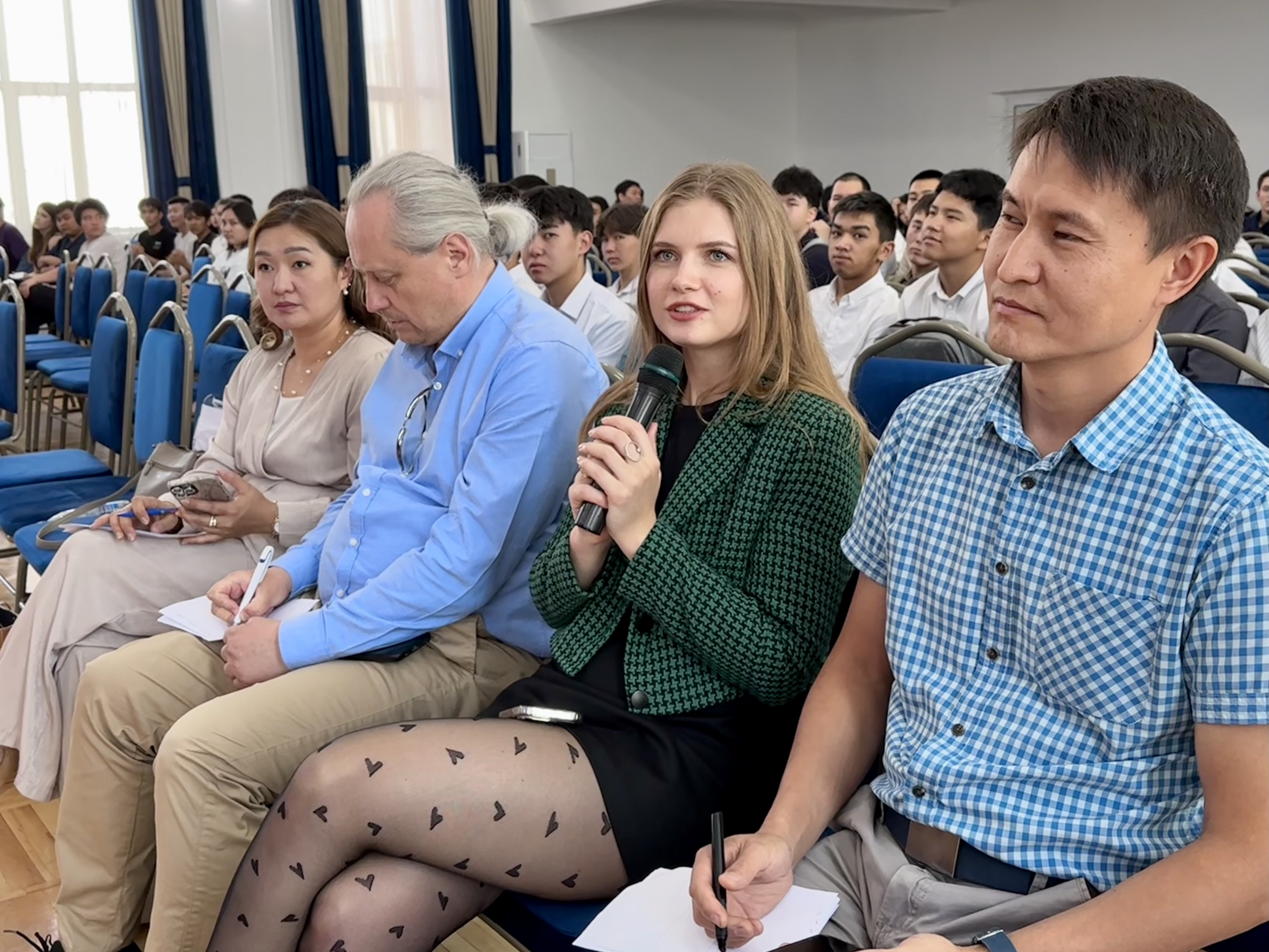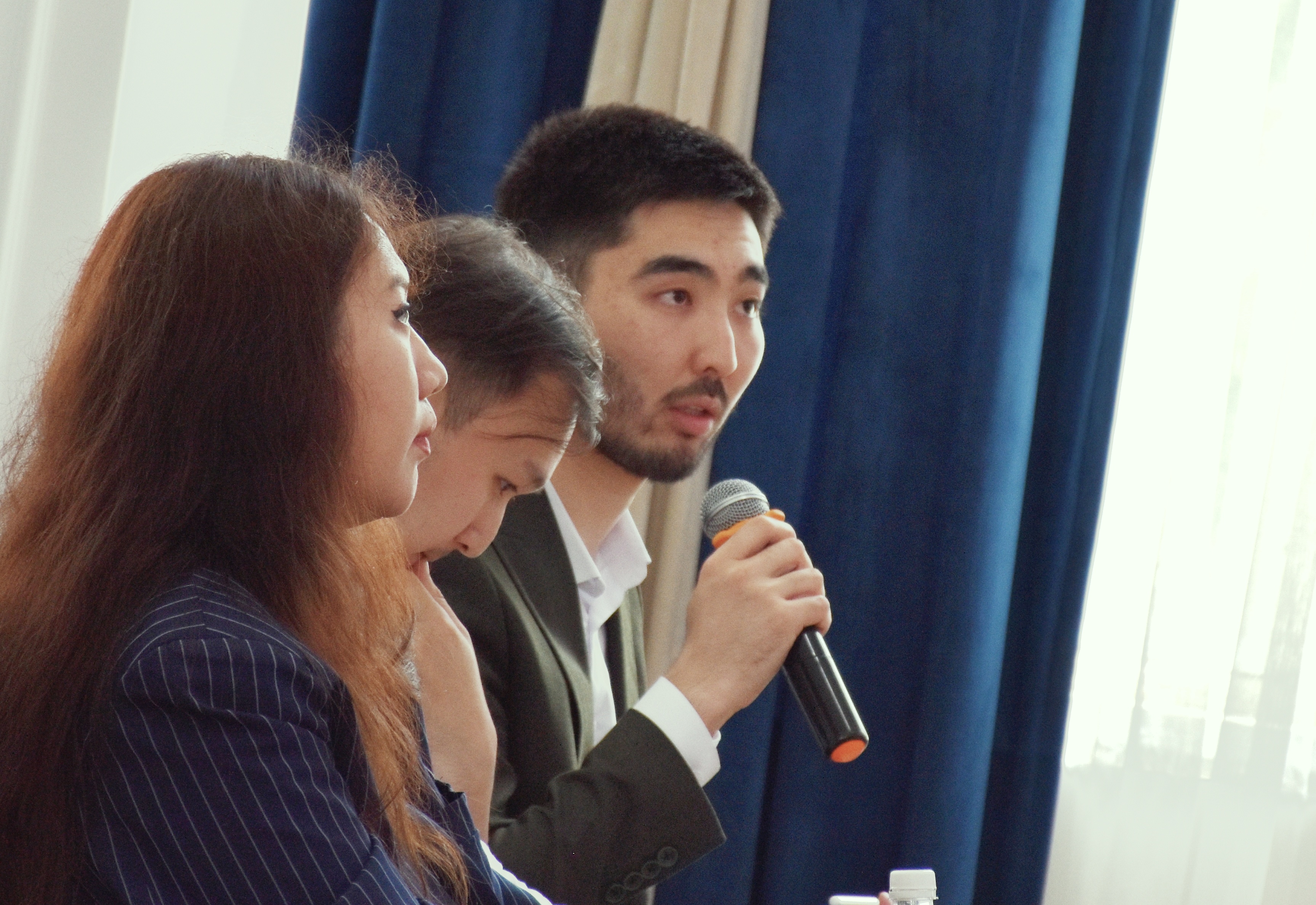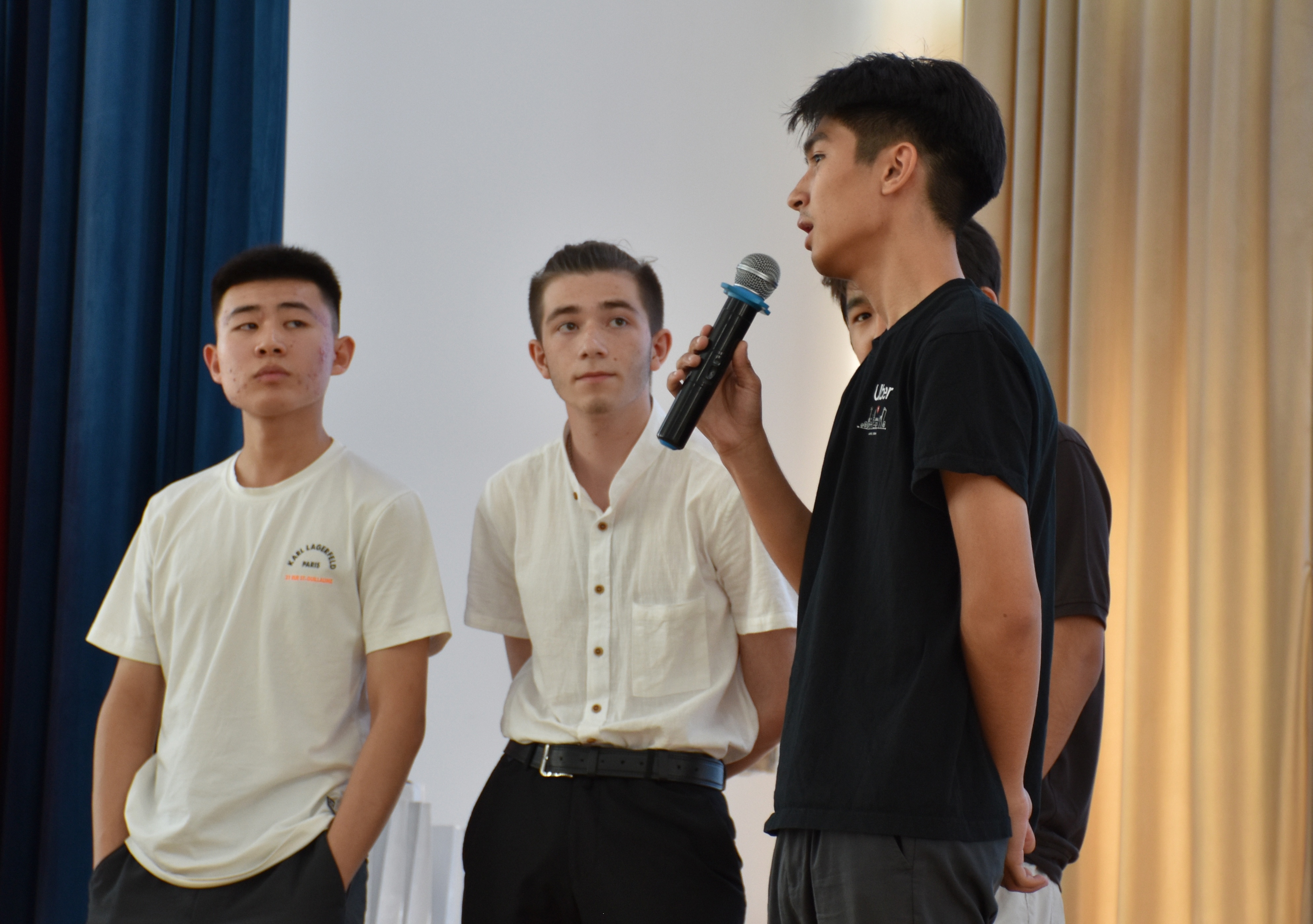6 June 2025
On May 29, the final of the hackathon "Digital Transformation of Public Services" was held in Bishkek. The event was organized by the International Telecommunication Union, Razzakov Kyrgyz State Technical University (KSTU) and National Information Technologies JSC (Kazakhstan) with the support of the Digital CASA – KR project and the University of Central Asia.
The hackathon lasted from May 27 to May 29, 2025, and was attended by about 50 participants - students of Bishkek universities. Of these, 44 made it to the finals – these are 10 teams that submitted the minimum viable version of the product (MVP) as a solution to one of the three proposed cases.
The winners of the hackathon are:
1st place – InfraMap (case 1) – Nurbol Sultanbekov, Nikita Undusk, Kairat Kubatov and Aitmyrza Dastanbekov, students of the Light Academy College of Engineering, worked on the solution.
2nd place – PublicPulse (case 2) – the project was created by Salma Aidralieva, Gulnura Onolbekova, Alaman Rysbekov, Nasipa Abdyrayimova and Azam Umarov from the American Institute of Technology.
3rd place – UrbanAI (case 1) – it was developed by Amir Bakirov, Adis Asanbekov, Islam Abdullaev, Aidarbek Kadyrbekov, Ilmurad Kamardinov and Alexey Ivanov from the Kyrgyz-German Institute of Applied Informatics (INAI).
Experts and mentors of the hackathon were ITU experts: project manager Anastasia Lagutik, analyst Maxim Buryanov and PR and media communication specialist Yulia Strelets, as well as specialists from National Information Technologies JSC (NIT JSC, Nitec): Aliya Almatova, Lead Manager of the Product Promotion Department and Project Manager for GovStack, Imangali Kerimbek, Big Data Smart Data Project Manager of Ukimet and Bakhtiyar, Leading Data Engineer of Smart Data Ukimet Temirov.
Nitec is an operator of information and communication infrastructure of e-government and IT solutions in the field of public administration of the Republic of Kazakhstan.
Experts from Nitec offered participants three cases on the digitalization of public services:
1) Recommendation system for the location of state institutions (schools, hospitals, fire stations) based on data and spatial analysis The task was to develop a prototype system that analyses data on population, infrastructure and transport and suggests optimal locations for the construction of new government agencies. The result was to be an interactive map.
2) Search for ineffective public services through the analysis of complaints and appeals To solve this case, the participants had to develop a prototype of a system that analyzes data on complaints, appeals and feedback from citizens to identify problematic, overburdened or ineffective public services.
3) Analytical platform for forecasting the needs in schools and kindergartens The output was supposed to be a BI system that analyzes data on the birth rate, population migration, building density and predicts where and in how many years the construction of new schools and kindergartens will be required.

The jury of the hackathon was divided into two parts: the first part evaluated the approach to solving the case, the level of readiness of the solution, and the quality of answers to questions. It included ITU consultant Anastasia Lagutik, professor of computer science at the University of Central Asia Dmitry Zubov, expert of the component on the development of digital skills and competence of DCASA-KR projects under the Ministry of Digital Development and Innovative Technologies of the Kyrgyz Republic Elina Sakkaraeva, and Head of the project "ICT4GIRLS in Batken" Adilet Khamrakulov.

Imangali Kerimbek and Bakhtiyar Temirov evaluated the projects from the technical side according to such criteria as the scalability of the solution, the quality of UI/UX, the depth of data analysis, the development of new features and the technical implementation of the product.
"All participants showed a decent level of case solving. It is clear that the guys have a desire to develop in the technical field. When we talked to one team, we found out that the developer first chose one technology stack, and then, after consulting, decided to use another. The fact that one developer in the team owns two stacks and is able to switch from one to another in one day is an excellent indicator for a student," says Imangali Kerimbek.
According to Imangali Kerimbek, in order for the projects of the hackathon participants to become stronger, more attention should be paid to the business part: so far, students do not have a very good understanding of how government agencies work and what difficulties developers may face in reality when implementing solutions.
As Imangali Kerimbek noted, the teams that managed to implement more functions in addition to the basic functionality won the hackathon - such features were, for example, the implemented integration with messengers and social networks, as well as artificial intelligence models.

InfraMap team
Nurbol Sultanbekov, a member of the InfraMap team, said that participation in the hackathon was the first such experience for their team, the project was completed on time, although some ideas had to be left for the future. The team positively assessed all the trainings during the hackathon, emphasizing their practical value.
As for interaction with mentors, Nurbol noted that most of the information was already clear at the stage of explaining the cases, and the details were clarified in the process. When asked how the team will spend the prize, he replied succinctly: "We haven't decided yet what the prize will be spent on."

PublicPulse team
Members of the team from the American Institute of Technology, who presented the PublicPulse project, said that participation in this hackathon was the first such experience for them. According to them, the work on the project was not easy: they hardly slept for two days, wrote the code at home at one of the team members, and made the final edits literally at the last moment just before the presentation.
Roles within the team were distributed flexibly – there was no strict division by directions, the participants helped each other both with the backend and the frontend. The team already had experience of working together and was studying in the same group, which helped to quickly establish cooperation.
According to the team members, they remembered the pitching and MVP trainings, as well as the meeting with NITEC representatives. When asked about their further plans for the prize, the guys said that they have not yet decided, but perhaps they will invest it in their own development.

UrbanAI team
Alexei Ivanov, the captain of the team developing the UrbanAI solution, said that over the past year, the team has already taken part in five or six hackathons on various topics. According to him, the time allotted at the ITU hackathon was quite enough for four or six people, especially considering the AI tools available, with 20 hours of pure time they managed to develop an MVP and prepare a presentation.
The roles in the team, according to Alexei Ivanov, were distributed in such a way that everyone focused on their task: someone was engaged in collecting and analyzing information, one participant prepared a presentation and text for it, the rest worked on the code and implementation of the product.
Alexey Ivanov noted that all the trainings were useful, but the training on creating an MVP with examples from real practice was especially memorable. "As for the interaction with the organizers, we immediately asked all the questions of interest and received detailed answers. Moreover, in the process of work, we were asked whether new questions had arisen," he shared.
The team plans to use the won prize to promote one of their joint projects.
This is the third time that the ITU team, together with I. Razzakov KSTU, has organized startup development events in Kyrgyzstan. The previous hackathon was held in Batken in April 2025 and attracted about 90 young people from Batken and Osh regions, and as a result, three teams won. Read more about how the hackathon in Batken was held in the
article.
|